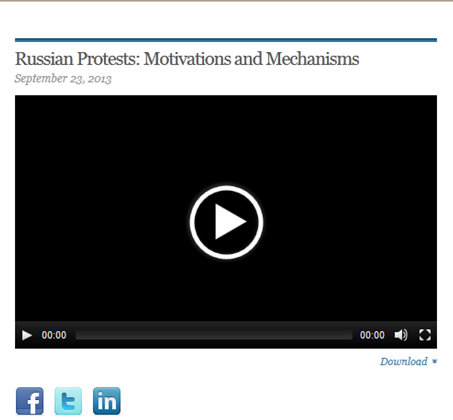Access to the internet has grown at an exponential rate in Russia during the last four years, and many commentators have ascribed a mobilizing role to the new media in the waves of discontent and protest surrounding the December 2011 parliamentary and March 2012 presidential elections. A series of surveys conducted during the 2011-2012 election season provides evidence for testing one key mechanism by which new media purportedly encourages opposition to authoritarian regimes: by providing easy access to a wide variety of politically relevant information in contexts marked by moderate to severe government control over conventional media. The surveys contained extensive measures of different forms of both new and conventional media use and of a wide range of political attitudes.
This data demonstrates that the use of new media for political communication—that is, the active exchange of political views on the internet—is indeed moderately associated with more critical (though not necessarily more democratic or progressive) views. However, passive use of the internet as a source of political information is unrelated to political views. The same holds for the use of social network sites. Use of traditional media sources is, as expected, related to more support for the government and its policies. The lack of a consistent relationship between web-based political information-seeking and political attitudes suggests that individuals who use the web for political communication are more critically-minded to begin with: in other words, the apparent positive “effect” of the internet on oppositional orientation is more likely due to self-selection into the group of those who use the web for political communication rather than due to a causal effect of web engagement on political views. These findings imply that policymakers should not assume that promoting internet freedom in Russia and elsewhere will increase the level of opposition attitudes. There are, however, other mechanisms by which the spread of new media might facilitate anti-incumbent mobilization. […]
PONARS Eurasia Policy Memo No. 279
By Theodore Gerber
September 2013









